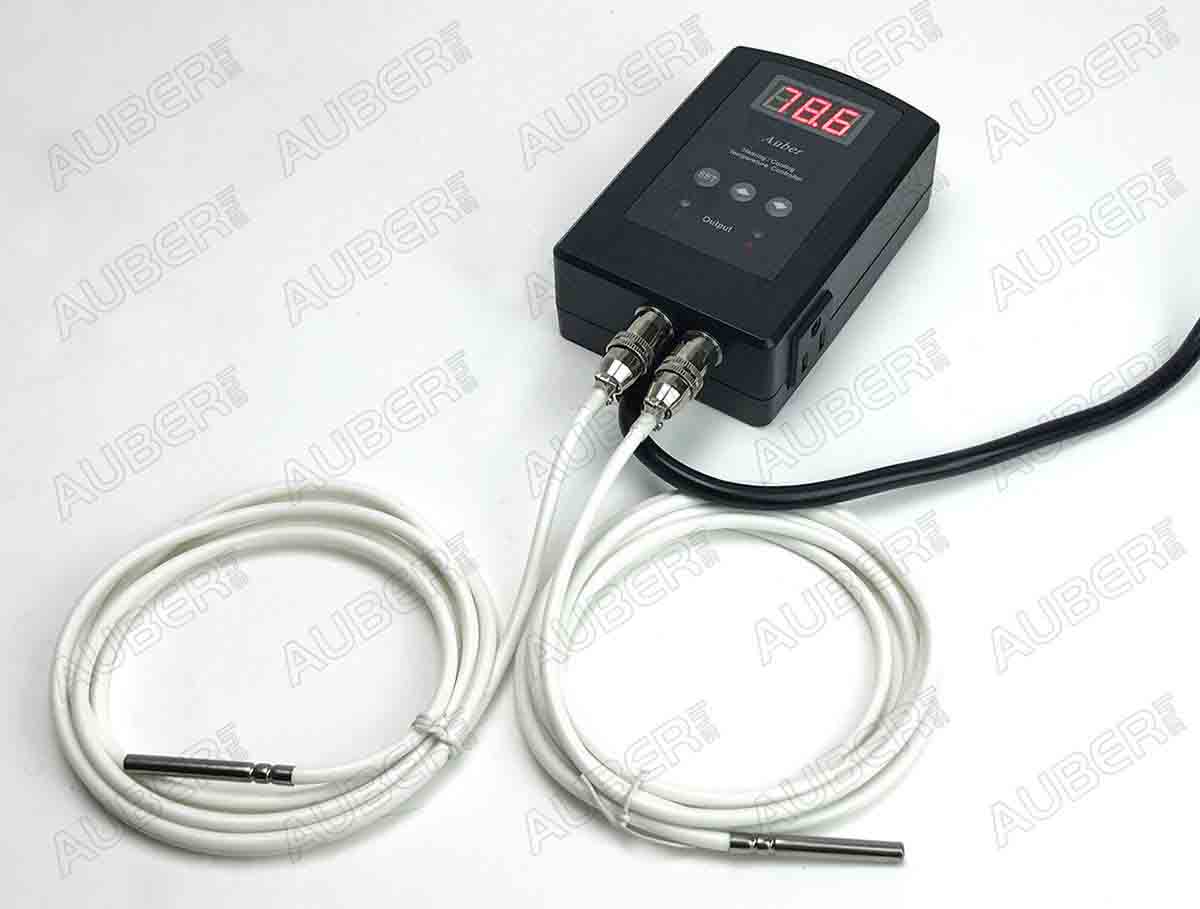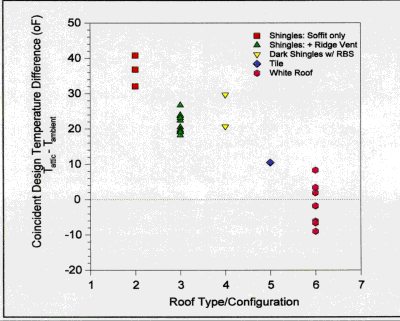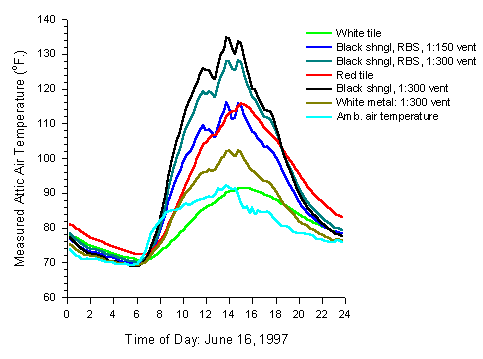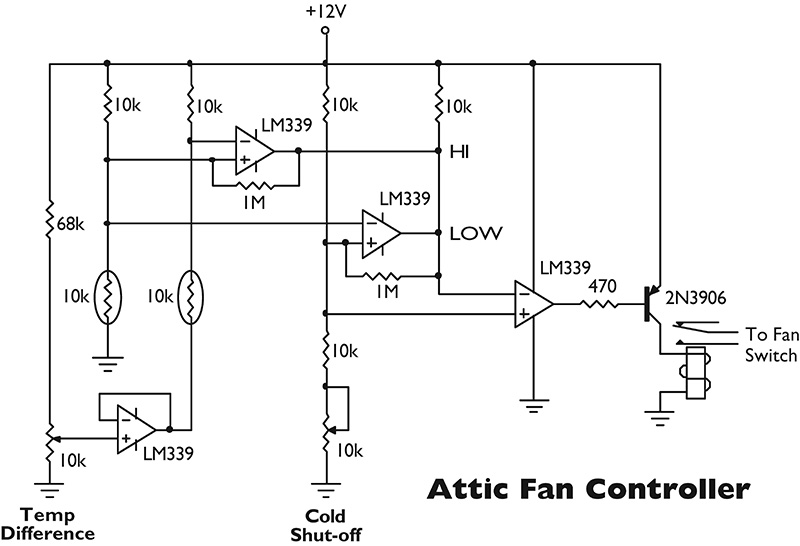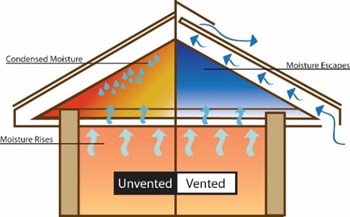The cooling load for a home air conditioner depends on the difference in temperature between the inside and outside air and reduction of attic temperatures from 155 degrees to 105 degrees f will result in a significant reduction in cooling load.
Attic temperature differential.
Eave space temperature 0 f outdoors calculated difference.
A good sign is when you open your attic in the winter and you don t see any frost on the nails poking through.
These images came from a presentation danny parker gave pdf on fsec s cool roof research the third graph shows attic temperatures from the middle of the attic for several different types of roofing as well as a sealed attic.
Heat flow through the insulation is roughly proportional to the temperature differance.
Ideal attic temperatures shouldn t be more than 10 to 20 degrees hotter than outside temperatures.
And remember that is with only a 2f degree differential.
The white roof lowered the attic temperature by about 20 f.
Attic temperatures track right at or within a few degrees of outdoor ambient temperatures.
If you are keeping your house at 78f in 100f ambient and the attic is 125f then you have a 47f temp gradient.
That is alot of energy falling on the top of the insulation.
If your attic soars above 100 degrees and reaches the 150 mark its time to consult professionals.
With 60 f in the eave space on the coldest day there is no risk of pipes freezing and minimal waste heat loss from the heating system ducts.
R value from outdoors to attic 1 u.
In this situation i check the temp drop at the unit.
January 8 2010 5 15pm text size.
The frost is frozen condensation from the warm air meeting the cold air and not ventilating if that.
What should the attic temperature be relative to the outside and house temperatures assuming a new supposedly well insulated house.
If the attic surfaces cool down 10f then the energy is 5x as great.
Depending on the location of the ducts and air handling equipment the temperature at the grill and vents may vary a great deal.
I have seen duct with r 6 insulation in a vented attic gain 2 3 degrees every 10 feet of run especially if it runs near the peak of the roof.
If you do a good job with attic fans and get the attic temp down to 5f over ambinet 105f then you are dealing with a 27f temperature gradient.
Your insulating and heating cooling the house not the attic.

